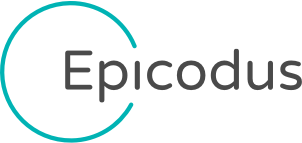Helping our students find great jobs is a huge part of what we do at Epicodus. In fact, it’s our mission. Over the years, we’ve accrued quite a bit of job-hunting knowledge to help set our students apart. In the next few weeks, we’ll be sharing our best tips and tricks for junior developers who are looking for their first jobs.
Before you walk into the interview, make a physical or mental list of things you absolutely do not want to leave the interview without them knowing about you. These are not necessarily catch-all things you spout off at every interview. Maybe you did a project that relates to what they’re working on. Maybe you have a lot of enthusiasm for a client they’re working with. As the interview is winding down, make sure you go through that list and that you’ve touched on all those things. Otherwise it can be really easy to walk out of an interview and only realize hours later that there were really important selling points you should have added.
This is not the time to ask about salary, vacation time, or other benefits. If they offer that information you can ask if those things are negotiable, but this is not the time to do the actual negotiating.
Be aware of non verbal cues. It can tell you as much about how an interview is going as what the interviewer is saying. You can usually tell if you’re overstaying your welcome or if an interviewer is receptive to extended conversation by their expression or body language.
Above all else, remember that the employer came to you because they have a problem and they want you to be the solution. They’re investing time in interviewing you because they are in your corner and they want it to be a positive encounter.
Checklist
Here's a handy checklist that we've created to help you:
- Dress appropriately for an interview.
- Conduct yourself in a professional manner.
- Have an answer for personal questions that highlights your journey to becoming a programmer.
- Have an answer for programming questions that highlights your knowledge and grasp of programming concepts.
- Have an answer for workplace questions in the S.T.A.R. format.
- Have at least one relevant question for your interviewer.
- Stay relaxed, and enjoy the opportunity to teach someone about yourself, and learn about a company.
Above all: don't undervalue yourself. Don't offer up your weaknesses or paint yourself negatively. The interviewer should know where you're coming from and can figure out your weaknesses on their own - it's your job to emphasize your strengths.
Finally, don't forget to send a thank-you email after the interview. Read this article about following up after an interview.

